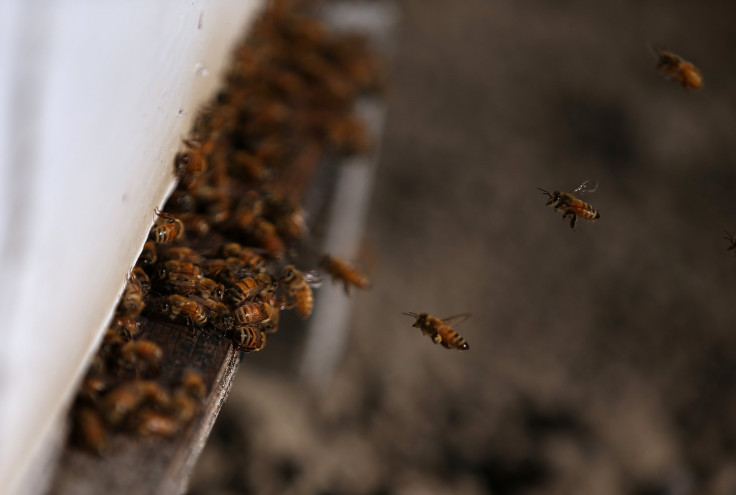Millions Of Bees Euthanized After Truck Crash In California

A semi-truck that was hauling hundreds of beehives got into an accident in a city north of Sacramento, Northern California, Thursday, forcing law enforcement authorities to euthanize the bees.
The truck which was carrying between $1 million to $2 million worth of bees veered off the 80 Freeway to avoid causing a chain reaction crash after traffic came to a sudden stop. Fox affiliate KTXL reported the driver then drove off a dirt embankment and crashed the truck on the roadway, killing thousands of bees.
Sgt. Tucker Huey of the Auburn Police Department told the Sacramento Bee that the police consulted several beekeepers who said the colonies could not be effectively salvaged. The beehives were then doused with soapy water, killing them. According to Beekeeper Nathan Smith, this was the only humane way to contain the bees. Huey said the water was sprayed — to prevent them from swarming — because of the late hour and a forecast of rain for the area. He said some bees had, however, managed to escape.
"There were bees everywhere, but they weren’t swarming because it was cool and night," Huey told the paper. "Had this occurred on a warm day, it would have been a much bigger deal."
The bees were traveling from Montana and were headed to the Central Valley to pollinate almond trees for the spring.
The driver of the truck was transported to an area hospital with minor injuries.
While the police were able to prevent the bees from causing harm to the human population in this instance, a swarm of 25 million bees were released into the air in another incident in Utah in 2014.
A semi-trailer truck hauling 460 beehives from Florida to Maine overturned on an interstate near St. Georges, Delaware, following which the bees stung several people including the truck driver, his passenger and those helping out at the scene of the accident.
Traffic was diverted for hours as the spilled swarm was so massive police couldn't "even get close to the truck," said Sgt. Paul G. Shavack of Delaware State Police.
The spill prompted state police to call in beekeepers who suggested dispersing swarms with water instead of rounding up the bees. But thick swarms continued to buzz around the wreck, Shavack said.
According to Live Science, more and more bee-carrying trucks have been crashing in recent years due to colonies being transported around the country on highways. The report also said industrialized hives created ideal breeding conditions for the pathogens and fungal diseases that may be killing the bees. Transporting the hives from farm to farm further spreads the pathogens to local bee populations.
It added that the U.S. Dept. of Agriculture stated on its website: "The number of managed honey bee colonies [in the U.S.] has dropped from 5 million in the 1940s to only 2.5 million today. At the same time, the call for hives to supply pollination service has continued to climb. This means honey bee colonies are trucked farther and more often than ever before."
© Copyright IBTimes 2024. All rights reserved.











